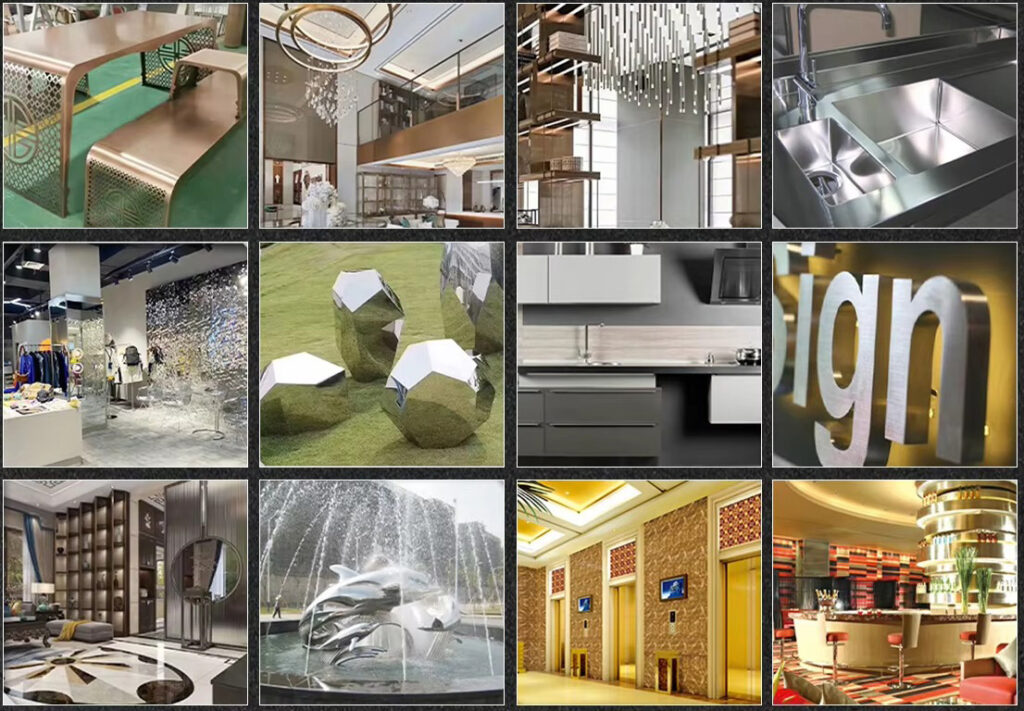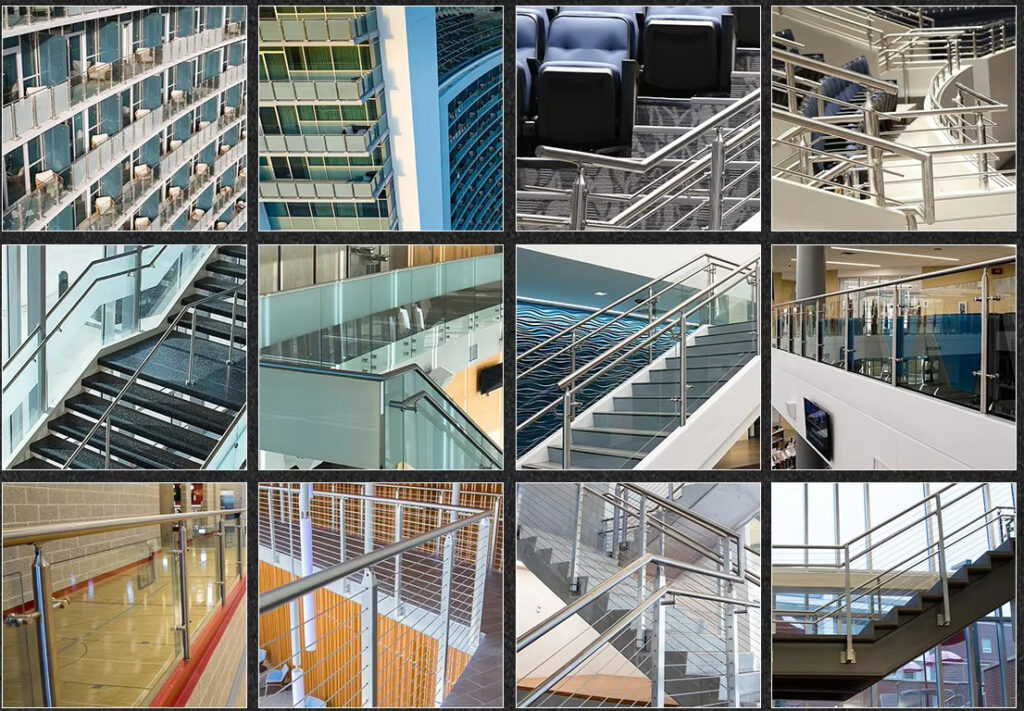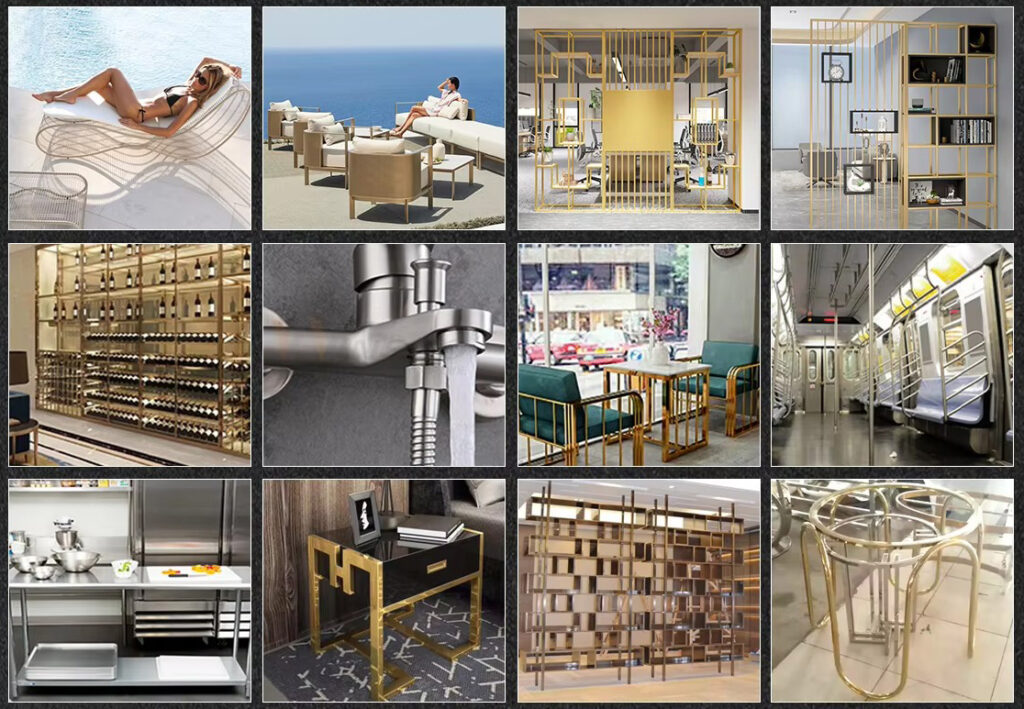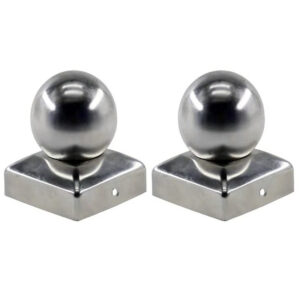
Post caps & end caps (round, square, decorative)
Post caps & end caps in 316L stainless steel. 23 years precision manufacturing for decorative applications worldwide. Request quote today.

Post caps & end caps in 316L stainless steel. 23 years precision manufacturing for decorative applications worldwide. Request quote today.
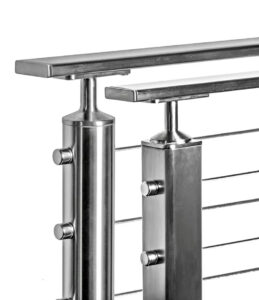
Square stainless steel posts in 304/316L grades. 23 years precision manufacturing for coastal projects worldwide. Request quote today.
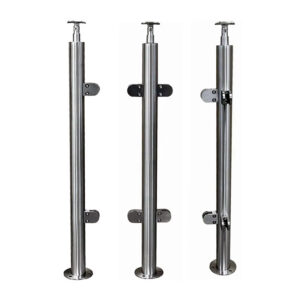
Stainless steel posts in 304/316L grades. 23+ years ODM fabrication for marine & commercial applications. Contact factory today.
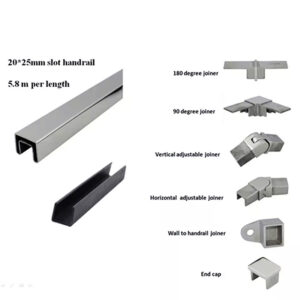
Square top rail components in 316L stainless steel. 23+ years precision manufacturing for global applications. Contact factory today.
Project-specific hardware in 316L stainless steel. 23 years delivering tailored solutions for specialized projects worldwide. Get factory quote today.
Non-standard size components in 316L stainless steel. 23+ years ODM manufacturing for unique sizing requirements globally. Contact us today.
| Specification | Our Stainless Steel Solution | Aluminum Alternative | Wood Alternative |
|---|---|---|---|
| Material Grade | 304/316L Stainless Steel | 6061-T6 Aluminum | Various Hardwoods |
| Tensile Strength | 515-827 MPa | 276 MPa | 40-140 MPa |
| Corrosion Resistance | Excellent (Marine Grade) | Good | Poor (Requires Treatment) |
| Surface Finish | Brushed/Mirror Polish | Powder Coated | Stained/Sealed |
| Maintenance Frequency | Annual Cleaning | Bi-annual Inspection | Seasonal Refinishing |
| Temperature Range | -40°C to 400°C | -40°C to 150°C | -20°C to 60°C |
| Wall Clearance | 38-63mm (ADA Compliant) | 38-63mm | 38-63mm |
| Load Capacity | 890N (200 lbs) Minimum | 890N (200 lbs) | 445N (100 lbs) |
| Fabrication Flexibility | Seamless Bends & Curves | Limited Complex Shapes | Difficult Non-Standard Angles |
Superior Material Performance
Our continuous stainless steel handrails deliver 50% higher tensile strength compared to aluminum alternatives, ensuring exceptional durability in high-traffic environments. The non-porous surface prevents bacterial growth and contamination, making them ideal for healthcare and food service applications.
Seamless Integration Design
Unlike segmented systems, our continuous handrails eliminate joints and gaps that can compromise safety and aesthetics. The uninterrupted surface provides consistent grip support, crucial for individuals with mobility challenges and emergency egress situations.
Weather Resistance Superiority
Stainless steel’s inherent corrosion resistance surpasses aluminum and completely outperforms wood in outdoor applications. Our 316L marine-grade option withstands coastal environments where salt exposure would rapidly degrade other materials.
Low Maintenance Operation
While wood requires seasonal refinishing and aluminum needs protective coating maintenance, our stainless steel handrails need only periodic cleaning with standard disinfectants. This reduces lifecycle costs by up to 60% over 20-year periods.
Healthcare Facilities
Hospitals and clinics benefit from our antimicrobial stainless steel surfaces that resist bacterial colonization. The seamless design eliminates crevices where pathogens could accumulate, supporting infection control protocols in critical care areas.
Marine and Coastal Properties
Waterfront restaurants, marinas, and coastal residential developments require 316L stainless steel to withstand salt spray corrosion. Our continuous system prevents water infiltration at joints, extending service life in these challenging environments.
High-Rise Commercial Buildings
Office towers and shopping centers utilize our continuous handrails for emergency stairwells where uninterrupted support is mandated by fire codes. The system’s strength handles heavy evacuation loads while maintaining grip continuity.
Food Processing Facilities
Manufacturing plants processing food products demand sanitary surfaces that withstand frequent washdowns with industrial cleaners. Our polished finish resists chemical attack while providing easy decontamination.
Transportation Hubs
Airports, subway stations, and bus terminals experience extreme usage patterns requiring materials that maintain appearance and function under constant wear. Our brushed finish conceals minor scratches while providing reliable grip.
What makes continuous handrails different from segmented systems?
Continuous handrails provide uninterrupted support without joints, brackets, or connection points that could fail or create gaps. This design meets ADA requirements for consistent grip support and eliminates potential failure points in emergency situations.
Why choose stainless steel over aluminum for handrails?
Stainless steel offers superior tensile strength (515-827 MPa vs 276 MPa), better corrosion resistance, and antimicrobial properties. While aluminum costs less initially, stainless steel provides lower lifecycle costs due to minimal maintenance requirements.
Can continuous handrails accommodate complex architectural layouts?
Yes, our fabrication capabilities include seamless radius bends, elevation changes, and custom angles without compromising structural integrity. Advanced forming techniques create smooth transitions that maintain continuous grip surfaces.
What grade of stainless steel is recommended for outdoor applications?
316L stainless steel is preferred for outdoor and marine environments due to enhanced corrosion resistance from molybdenum content. 304 grade works well for indoor applications and mild outdoor conditions.
How do continuous handrails meet ADA compliance requirements?
Our systems provide uninterrupted grip surfaces with proper height (865-965mm), adequate wall clearance (38-63mm), and 200-pound load capacity as required by accessibility standards.
What surface finishes are available for different applications?
Brushed finishes (#4 finish) work best for high-traffic areas as they hide fingerprints and scratches. Mirror polish (#8 finish) suits decorative applications but requires more frequent cleaning to maintain appearance.
How often do stainless steel handrails require maintenance?
Routine cleaning with mild detergent every 3-6 months maintains optimal appearance and hygiene. Unlike wood or coated metals, no refinishing or recoating is necessary over the product’s 25+ year lifespan.
Can continuous handrails be retrofitted to existing stairways?
Yes, our mounting systems accommodate various wall types and existing structural configurations. Professional assessment ensures proper anchoring and compliance with current building codes.
Industry Standards Compliance
Our continuous handrail systems meet ASTM A240 specifications for stainless steel sheet and plate materials, ensuring consistent metallurgical properties and performance characteristics. ISO 9001:2015 quality management certification guarantees manufacturing consistency across all production batches.
Building Code Requirements
Systems comply with International Building Code (IBC) Section 1014 for handrail continuity requirements and ADA Standards Section 505 for accessibility. OSHA 29 CFR 1910.29 compliance ensures workplace safety in industrial applications.
Material Certifications
Mill test certificates verify 316L stainless steel composition with controlled carbon content (<0.03%) for optimal corrosion resistance. NACE MR0175 qualification confirms suitability for sour service environments in offshore and chemical processing applications.
Testing Standards
Load testing per ASTM E935 standards validates structural capacity under design loads. Salt spray testing (ASTM B117) demonstrates superior corrosion resistance with 1000+ hour exposure without degradation, significantly exceeding aluminum performance benchmarks.
Fabrication Standards
AWS D18.1 welding specifications ensure proper joint integrity in fabricated assemblies. ASME BPE standards compliance provides sanitary design criteria for pharmaceutical and biotechnology applications requiring the highest cleanliness levels.
